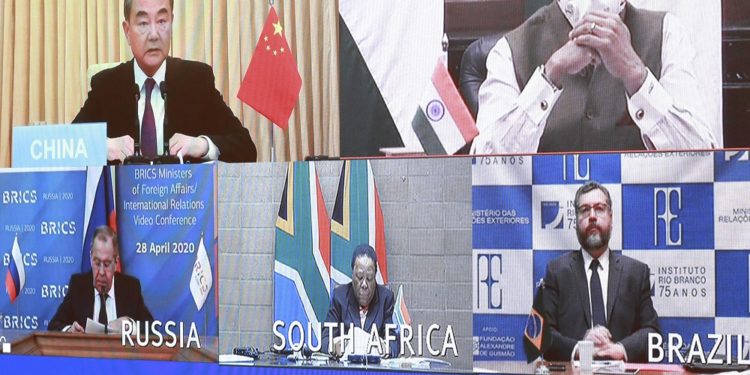The strategy, approved at the end of the 12th BRICS Leaders Summit, provides a clear road map for the economic and trade cooperation of BRICS countries in the next five years in trade, investment, finance, digital economy and sustainable development, said Chen Chao, deputy director-general of the Department of International Trade and Economic Affairs at the Ministry of Commerce.
The strategy determines the medium-term priorities for the development of the bloc’s interaction in trade, investment, finance, assistance to micro, small and medium-sized enterprises, and the digital economy for sustainable growth, he said.
BRICS is an acronym for the five major emerging countries of Brazil, Russia, India, China and South Africa, which together represent about 42 percent of the global population, 23 percent of global GDP, 30 percent of world territory and 18 percent of global trade, according to the South Africa-based BRICS Business Council.
The official made the remarks after President Xi Jinping called on BRICS countries to uphold multilateralism and work in solidarity to overcome global challenges, including the COVID-19 pandemic and the virus-hit world economy, during the summit via video link in Beijing on Tuesday.
The summit comes at a critical time of profound challenges posed by COVID-19 both within the bloc and globally.
Chen, from the Commerce Ministry, said that China has always been a firm advocate and active promoter of economic and trade cooperation between BRICS economies. The country will work with all parties to strengthen BRICS members’ anti-pandemic actions and pragmatic economic and trade cooperation, maintain the security and smoothness of the global supply and industrial chains, and support the multilateral trading system.
By working together, BRICS countries will tackle the current crisis and ensure economic growth, he added.
Experts said the five countries have entered a new stage of comprehensive cooperation that would not just focus on trade but on a wider range of issues to raise people’s living standards and achieve an economic rebound.
Reinforcing ties
Given the major role of BRICS countries in the global economy and trade, such a strategy will give fresh momentum to multilateralism and send a clear signal that the emerging powers are reinforcing their ties despite the existing challenges brought by unilateralism and protectionism, said Zhang Jianping, director-general of the Beijing-based China Center for Regional Economic Cooperation.
He said more cooperation will be conducted during the era of digitization, and new infrastructure and high-tech industrial development, as BRICS members hope to make a faster recovery from the disruption caused by the pandemic.
For instance, China and Russia already cooperate in emerging sectors including new materials, 5G, widebody large passenger aircraft, robotic science, and application and navigation systems, and their business ties will be further enriched.
“Against the backdrop of the pandemic, we are pleased to see the efforts of the BRICS countries in promoting investment cooperation, policy transparency and efficiency. The new strategy will enhance their investment attractiveness to each other,” said Thun Lee, head of China at TMF Group, the Netherlands-headquartered provider of administrative support services for international business expansion.









